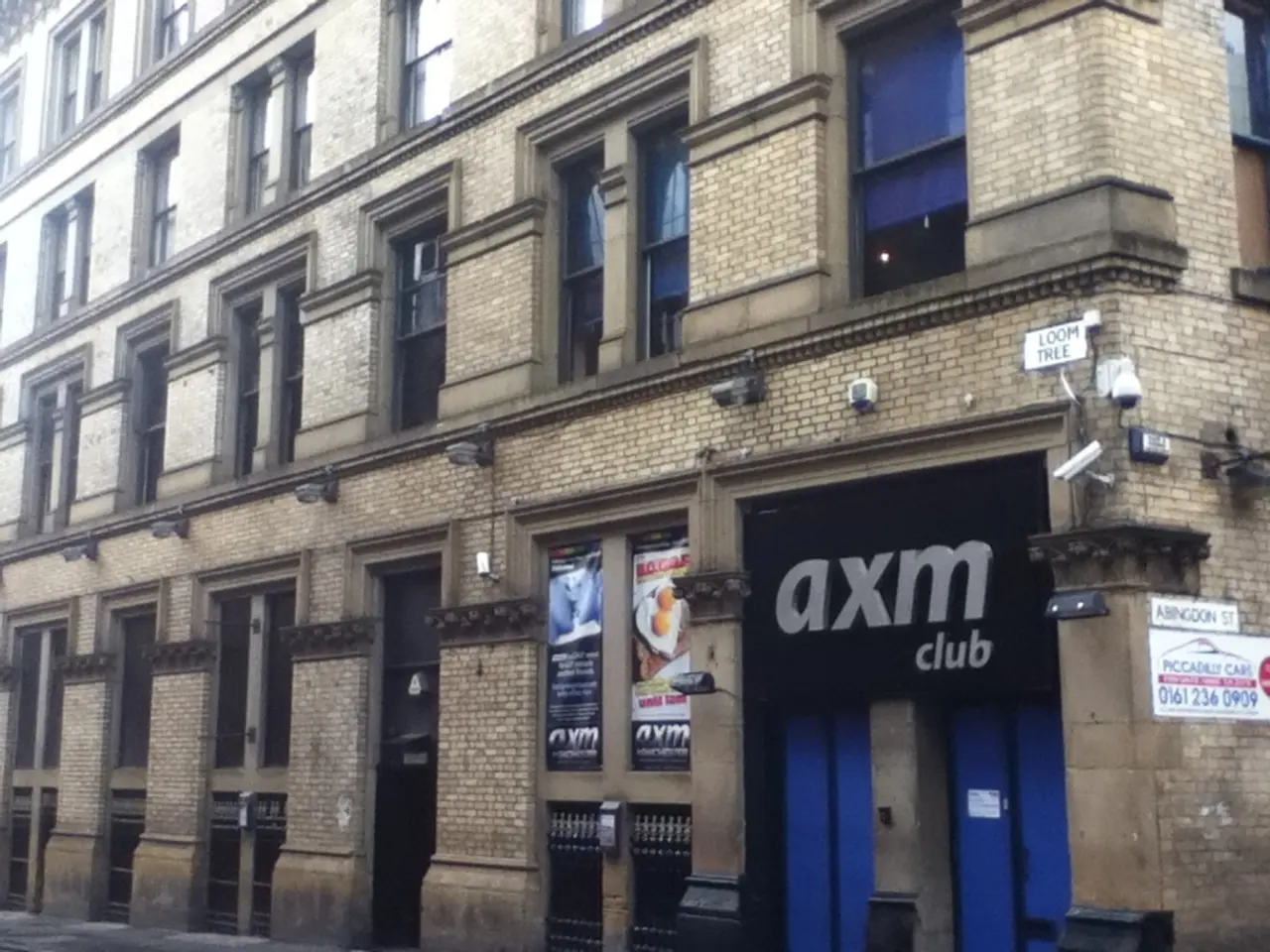Unemployed workers voluntarily striking in Democratic-led states might forfeit their unemployment benefits under a Republican plan
In a move aimed at protecting the integrity of the unemployment system and strengthening the small business economy, the National Federation of Independent Business (NFIB) is urging Congress to pass the SHIELD Act. The Act, introduced by Republican lawmakers, aims to prohibit striking workers from receiving unemployment benefits at a federal level.
The current landscape regarding unemployment benefits for striking workers varies by state. Traditionally, many states have barred striking workers from receiving unemployment benefits, considering such unemployment as resulting from a voluntary work stoppage rather than job loss through no fault of their own. However, recent changes in legislation have altered this landscape in some states.
Washington State, for example, will remove the disqualification for striking workers to receive unemployment benefits under specific conditions, starting from January 1, 2026. Striking workers can receive benefits after a disqualification period, while locked-out workers can receive up to 26 weeks of benefits [1][2]. Oregon has also followed suit by signing a bill to provide unemployment pay to striking workers [5].
At the federal level, there is no uniform legislation that prohibits striking workers from receiving unemployment benefits across all states. Instead, policies are set by individual states, leading to varying rules and regulations.
Rep. Rudy Yakym, R-Ind., is sponsoring the SHIELD Act, which would bar unemployment benefits if the individual is "providing financial support to or has a direct interest in" the dispute. The Act is co-sponsored by Reps. Aaron Bean, Mike Kelly, Blake Moore, Nathaniel Moran, Greg Murphy, David Rouzer, Claudia Tenney, and Beth Van Duyne.
Tyler Dever, vice president of government relations at the NFIB, stated that the SHIELD Act restores fairness to the unemployment system by ensuring benefits go to individuals who are involuntarily unemployed. Rep. Yakym added that it puts an end to "handing out unemployment checks like participation trophies to anyone who walks off the job."
Meanwhile, strikes are ongoing in various sectors. Boeing workers, represented by the International Association of Machinists and Aerospace Workers, held a major rally at the Boeing Portland Facility on September 19, 2024. SAG-AFTRA members were on strike for four months, and currently, Cassidy Fleser of Biddeford is participating in a nationwide strike demanding Starbucks fully staff union stores and bargain in good faith.
In a separate development, the Department of Homeland Security (DHS) has ended collective bargaining for TSA's Transportation Security Officers. The ongoing labour disputes highlight the need for legislation like the SHIELD Act to bring clarity and fairness to the unemployment system.
[1] https://www.leg.wa.gov/Documents/Session%20Laws/2024b/Pdf/Session%20Laws/Senate/5041.pdf [2] https://www.leg.wa.gov/News/Articles/Archive/2024/05/18/Governor-Inslee-Signs-Bill-to-Provide-Unemployment-Pay-to-Striking-Workers [5] https://www.oregonlive.com/politics/2024/05/oregon_senate_passes_bill_to_provide_unemployment_pay_to_striking_workers.html
- The ongoing debates on the fair distribution of unemployment benefits in relation to strikes continue, as seen in current policy-and-legislation discussions, such as the SHIELD Act, aimed at prohibiting striking workers from receiving benefits at a federal level, while some states, like Washington and Oregon, have recently decided to provide unemployment benefits to striking workers under particular conditions.
- The National Federation of Independent Business (NFIB), in line with its recent urging of Congress to pass the SHIELD Act, believes that enacting such a policy would strengthen the small business economy by ensuring the integrity of the unemployment system, as it would provide benefits to individuals who are involuntarily unemployed, rather than those who leave their jobs due to strikes.








